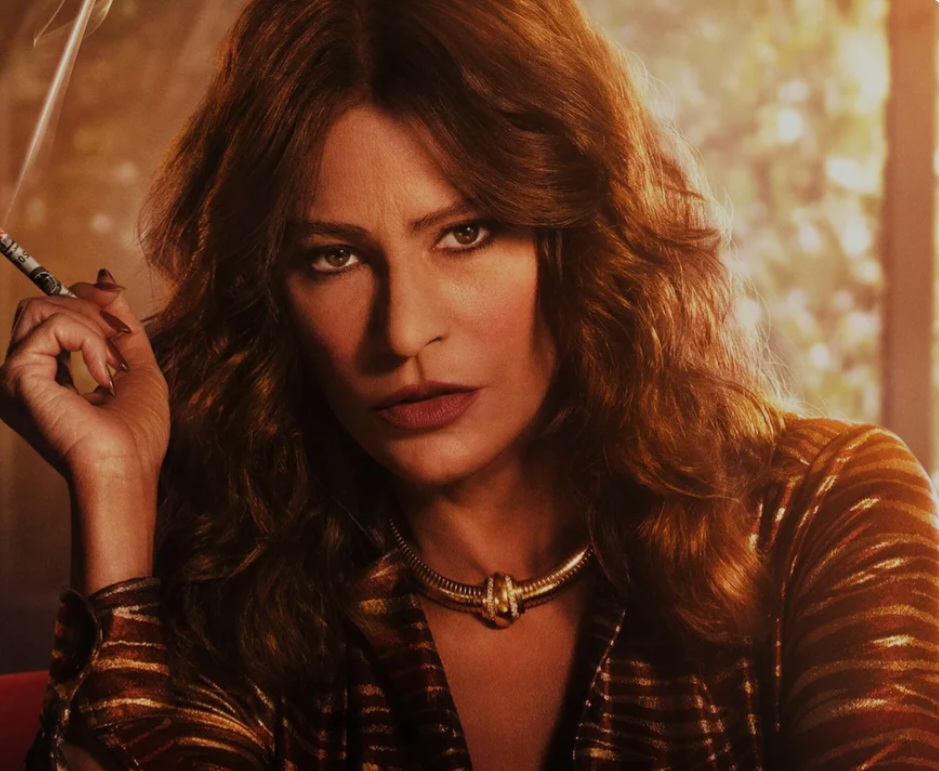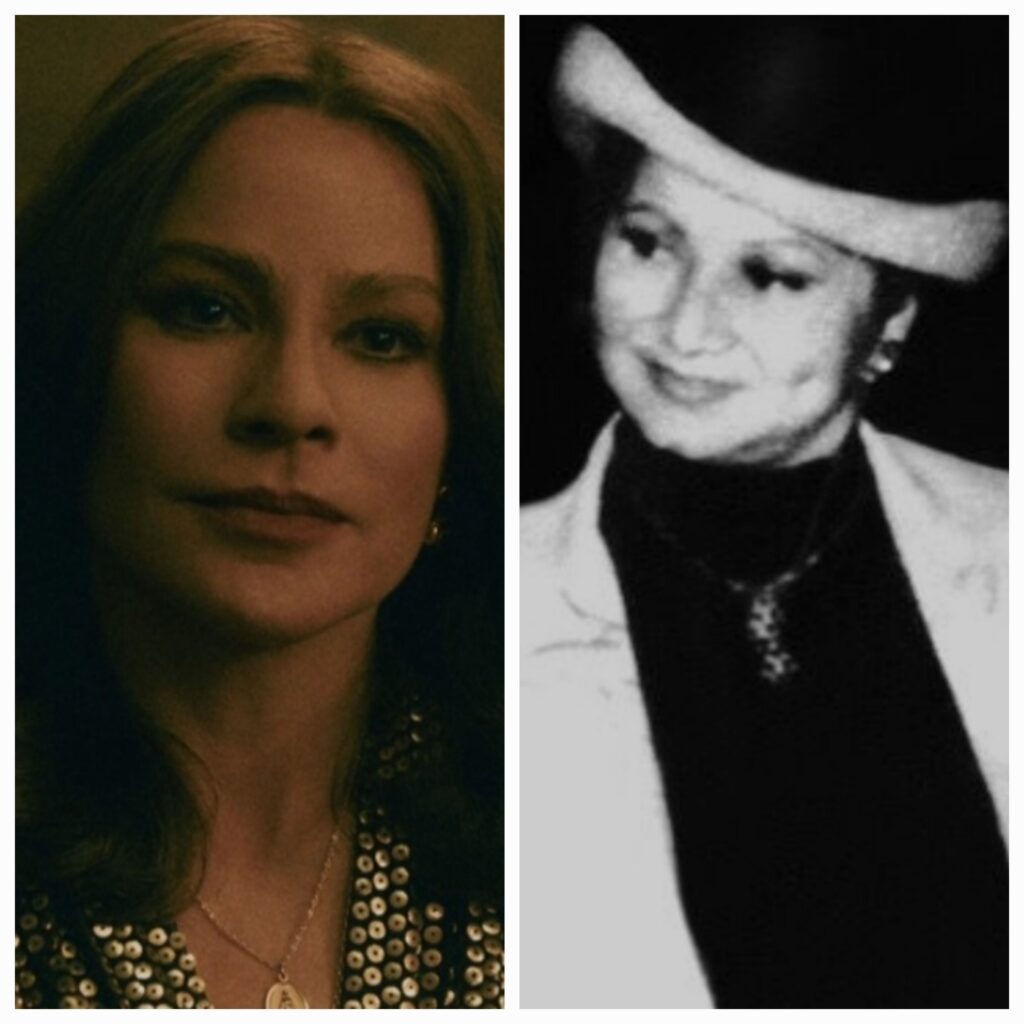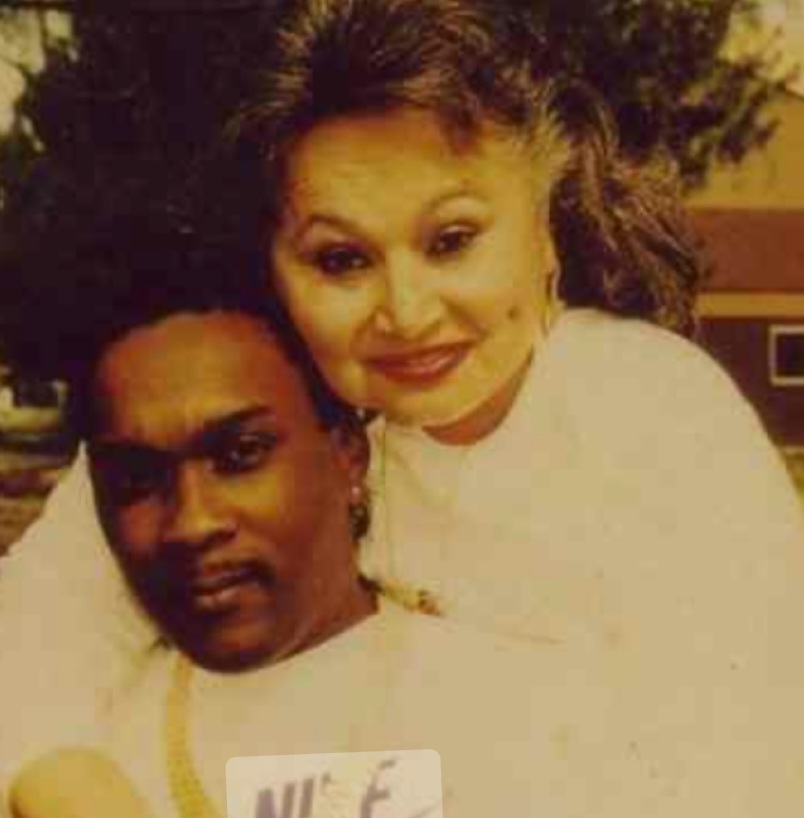
An inaccurate, underwhelming portrayal of the Cocaine Godmother
Back in the mid 2000s, a documentary entitled Cocaine Cowboys was released, which detailed the cocaine boom in the 70’s and 80’s, which had an everlasting impact on the city of Miami, Fl. And one of the key figures responsible for this renaissance was Griselda Blanco, a Columbian druglord who would be eloquently referred to as the “Godmother of Cocaine.” This documentary was the first real introduction of this historical figure to millennials such as myself. Given Netflix’s recent track record with biopics and true crime dramas (Emmy award winning Dahmer as an example), I was looking forward to watching this release. Sadly, due to the numerous liberties that were taken in the portrayal of this criminal icon, the show suffered as a result.
The show begins with Sofia Vegara, who plays the drug queen pin, leaving her home town of Medellin, Columbia, in the middle of the night with her three sons, as she escapes her abusive husband. Once she reaches Miami, she makes connections, recruits fellow Columbians to become her drug mules and enforcers and begins to build her criminal empire. Once she establishes herself as the “Godmother of Cocaine,” the remainder of the series goes through the rise and fall of the typical crime boss: Extravagant wealth, respect and admiration that becomes marred by greed, arrogance, trepidation and paranoia. And while the key components and events of this telling are accurate, the depiction of Griselda Blanco were not, leaving this series feeling inauthentic and by the numbers, with a slight odor of the modern feminist agenda as the culprit.
A savage portrayed as a loving mother and entrepreneur
Creative liberties are usually taken in the creation of any biopic, yet too much freedom was given in the creation of this series. From the offset, Sofia Vegara looked nothing like the real Griselda. Even with the supposed three hours of makeup, which included prosthetics and “fake teeth,” Sofia essentially looked like a less attractive version of herself. By all accounts, Griselda Blanco was an average looking woman. She had a cleff chin, a full face, very fair complexion and was quite heavy set.

One of these things is not like the other…
The incongruencies don’t stop with the physical portrayal. Griselda Blanco was a sociopathic, homicidal monster. As a young teen, she kidnapped a boy from a wealthy family and then murdered him once his family refused to pay. She was responsible for the deaths of each of her three husbands (and ordered a failed assassination attempt on her boyfriend while she was in prison), which earned her the name of black widow. She was a drug addict, as she regularly consumed both cocaine and crack. And she was a megalomanic, constantly flaunting and abusing her power, introducing herself to the uninitiated as the Godmother, and threatening violence whenever she felt an offense was made to her
Let me re-emphasize that she was a MURDERER, as it is rumored she was responsible for the deaths of over 200 people. These murders were also indiscriminate: She would have you killed if she didn’t like the way you looked, the way you smelled, if she felt disrespected, if she felt her children were disrespected, if you messed up a drug deal, or if you made good on your promises but she didn’t want to pay you. For example, towards the end of the series, Griselda is at her wits end and her former drug trafficking connects fall through, she illicits the help of Marta Ochoa, the sister of the famed brothers who were connected to the Medellin cartel. Marta then dies of a cocaine overdose. In actuality, Griselda kills her because she didn’t want to pay off the debt for the cocaine.
This Netflix series would have you believe that she was simply a loving mother who tried to get her precious children away from their abusive father. That she was simply trying to make a better life for her family in the states, and didn’t know of any other way to support herself then drug dealing. And that she fell victim to the typical trope of those involved in the criminal world, with achieving unsustainable success and finally being captured by the authorities. Its disappointing that such a notorious, but prominent figure in the Miami drug trade was portrayed in such a mundane manor.
A key agent doesn’t receive his curtain call
Netflix’s Griselda also portrays Officer June Hawkins (played by Juliana Aiden Martinez) and a detective simply named “Diaz” as the key authorities who were responsible for Griselda Blanco’s investigation and eventual capture. But in reality, Officer Hawkins played a very minor role in the arrest of the drug Queenpin.
The key authority in Griselda’s arrest was a DEA Agent by the name of Robert Palumbo. He tracked her all the way from her beginnings as a Drug trafficker in New York City, through her meteoric rise as the cocaine Godmother in Miami, and lead his team to her ultimate capture in Los Angeles. It took him over a decade to apprehend Blanco. He stated to his colleagues that if he ever had the pleasure in arresting her, he would give her a kiss on the cheek; and he made good on the promise when he finally put the cuffs on her. Yet, this Netflix series makes absolutely no mention of Bob Palumbo’s role.
In fact, the involvement of federal authorities is totally downplayed through out the entirety of this limited series. While CENTAC (a joint task force that comprised of Miami Law Enforcement and the Federal agency of the DEA) was mentioned in the series, they appeared in name only, as the true gravitas of the federal government’s involvement was extremely down played. In reality, the Miami Drug war became so out of control that then President Ronald Reagan declared this an epidemic, and sent federal resources to help stymie the situation. None of this was shown during the series; as it appeared that only the Local PD were responsible for taking down one of the most notorious drug lords in North America, with Officer Hawkins and detective “Diaz” at the helm.
A remarkable tale that’s short changed
While viewing this series, I would constantly think back to the Cocaine Cowboys documentary, and how much of this show was a missed opportunity. After I finished this series, I re-watched that documentary, along with Cocaine Cowboys 2 and another documentary solely focused on the Godmother.
While Griselda was a savage, she was a product of her environment. She was the daughter of a prostitute, used prostitution as a profession to survive in the criminal laden city of Medellin, was arguably a victim of statutory rape, as she bore 3 children before the age of 20, and became involved in the drug trade by the influence of her first husband.
She immigrated to New York City, using her skills in forging fake passports, then once the authorities caught wind of her, made her way to Miami. Then, transferred to LA before finally getting arrested. Even during her incarceration, she managed to keep some semblance of her drug empire afloat, utilizing her sons to facilitate her trafficking in Medellin, and her boyfriend Charles Cosby, to distribute the product stateside. What’s interesting about this relationship is that Charles was a middling drug dealer that happened to write Griselda a fan letter while she was in prison. Out of the numerous fan letters she received, she happens to respond to his, which then transforms into both a business and a romantic relationship between the two. Charles even becomes well acquainted with her sons and breaks the news to Griselda when her oldest is murdered in Columbia (not June Hawkins, as depicted in the show). Considering that Columbians didn’t particularly care for blacks during that time frame, the age difference between the two, and the fact she tries to kill him for sleeping with a white woman (missing the opportunity to add him as the fourth victim of her murdered lovers), this would have made for compelling tv.

Truth is often more interesting then fiction. The story of Griselda dating a black man over 20 years her junior, while being incarcerated and acting as his cocaine connect, would have made for compelling tv.
Instead, Griselda’s tale is watered down to six and a half hours of hamstrung melodrama. For such a fascinating life story, Griselda’s Limited Series feels quite unoriginal, by the numbers and to put simply, boring. I found myself lamenting that the series wasn’t nearing its conclusion during its mid way point instead of eagerly clicking next for the following episode. This series could have been another iteration, or even a spin off, of the critically acclaimed Narcos. Or at the very least, it could have had the same sort of captivation as Dahmer; and maybe it does for some viewers, as it boasts a positive Rotten Tomatoes and fairly high IMBD score.
Yet to this viewer, this series felt grossly underwhelming. Instead of keeping true to the events of Griselda’s life, while changing some elements in order to fit into the structure of a tv show, it seemed like the attempt was to portray this woman in a favorable light. Dare I say, the creators wanted to soften the depiction of a deplorable human being because it would be unsavory to the audience to depict any woman in such a manner. And if any of that is true, then that is very disappointing. We are all human, both men and women. Each gender is capable of extreme acts of kindness as well as deplorable acts deemed to be purely evil. Pablo Escobar was portrayed accurately in most of his appearances in main stream media. Jeffrey Dahmer, while humanized to a degree during his Netflix depiction, was nonetheless shown to be the monster he was in real life. Griselda Blanco deserved that same treatment, yet regrettably, it seems as if the creators didn’t believe that the audience would be able to tolerate her true story, and sandbagged key elements to her narrative. Thus, I can confidently predict that Netflix’s Griselda will eventually be buried under the mud slide of content that is continuously released by this platform.